by Brian Hioe
語言:
English /// 中文
Photo credit: 中岑范姜/Flickr
No, The KMT Is Not Localized, Nor Will It Localize Anytime Soon
IN A RESPONSE to an article in the Hong Kong Economic Journal by Joseph Lian, News Lens International editor-in-chief J. Michael Cole makes the argument in his article, “Like It Or Not, The KMT Is No Monolith”, that the Taiwanese KMT cannot be compared to pro-Beijing forces in Hong Kong on the basis of that the KMT cannot be treated be as a monolithic entity. Though responding to what is in fact only four lines of Lian’s article, Cole claims that the KMT has “localized over the decades and has been transformed by the liberal-democratic ideals that are now inextricably tied to Taiwan’s identity.”
Against the view of the KMT as uniformly pro-unification, Cole claims that the KMT is “factionalized and of great diversity, with many voices, particularly in the south, that act as a counterweight to the few remaining dinosaurs who have retained an emotional attachment to China.” As such, given that “the KMT faces immense pressure to rejuvenate itself so as to be more competitive in Taiwan’s democratic landscape”, as Cole would have it, “it’s only a matter of time before the few who espouse views that are reflected by less than 10% of the population in Taiwan are cast aside and replaced by politicians who are more current in their policies.” Cole finds evidence of this in that “when Hung was the KMT’s presidential candidate last year, it was her own party that sidelined her because of her ‘pro Beijing’ views, replacing her with the more palatable Eric Chu”.
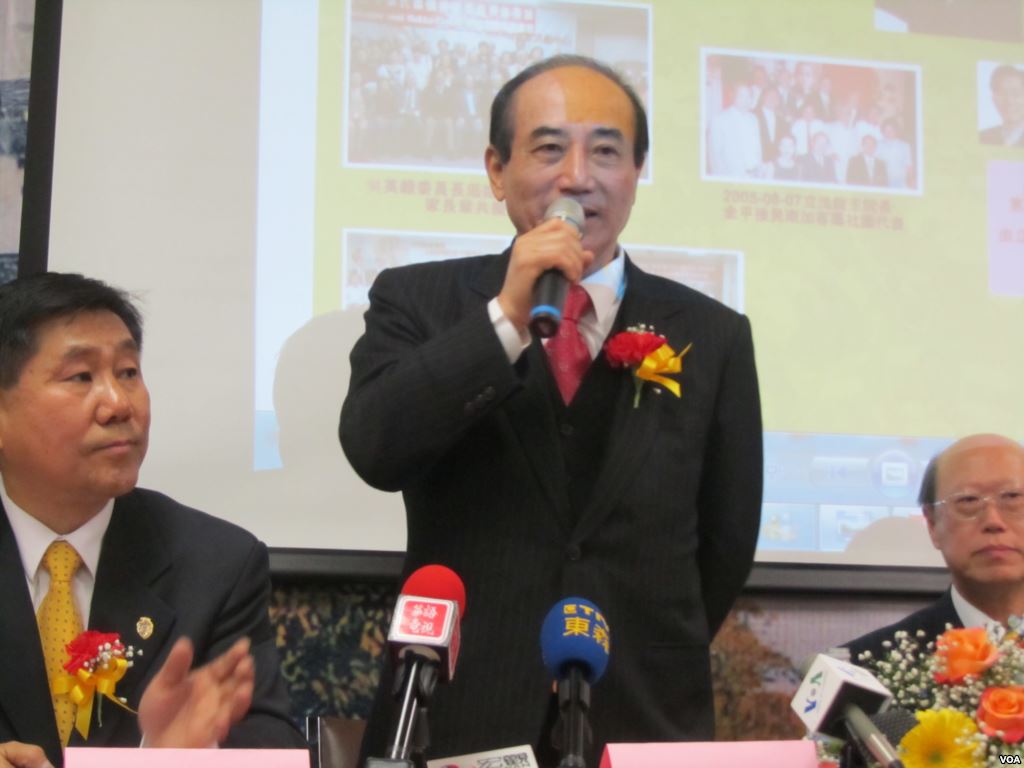 Wang Jinpyng of the KMT. Photo credit: VOA
Wang Jinpyng of the KMT. Photo credit: VOA
Nevertheless, we might argue against this quite rosy and rather optimistic view of the KMT. To begin with, what part of the KMT is localized? Even in the present, ethnically benshengren politicians are unable to attain places of leadership in the KMT. We see this in the political marginalization of Wang Jinpyng and his “Taiwanese” faction, with Wang never being allowed to take political leadership within the party or having an opportunity run for the presidency because of ethnic bias against him, this despite that Wang is an experienced and crafty politician, more than qualified to be party leader. Is this is whose faction Cole seems to think will take over the KMT? Though certainly more local, as we just saw in recent power struggles within the KMT, Wang and his “Taiwanese” faction of the KMT have already been denied the chance to change the party precisely because of the refusal of the party old guard to compromise on issues of localization.
Likewise, the reform efforts of young people within the KMT are put down by the old guard, because of this continued terror of localization. We saw this with the recent rise and fall of the “Grassroots Alliance” that rose out of young people in the KMT, who realized after the Sunflower Movement that the direction of the party was unable to appeal to young people and that this meant the eventual extinction of the KMT unless it was able to change this fact. This would seem to be proof against Cole’s claim that the current KMT old guard will inevitably be “replaced by politicians who are more current in their policies”.
It is that the efforts at reform within the KMT have been systematically stymied, instead of it simply being a matter of time that reform succeeds, as we see in the inability of the KMT to develop new leadership and new voices, not for the lack of trying by young party adherents as the Grassroots Alliance. Indeed, the Grassroots Alliance actually had the sympathy of elements of Taiwanese youth activism from across the political aisle—but were heavily attacked within the party for having sold out too much to pan-Green sentiment, or were accused of being the youthful acolytes of the renegade Wang Jinpyng.
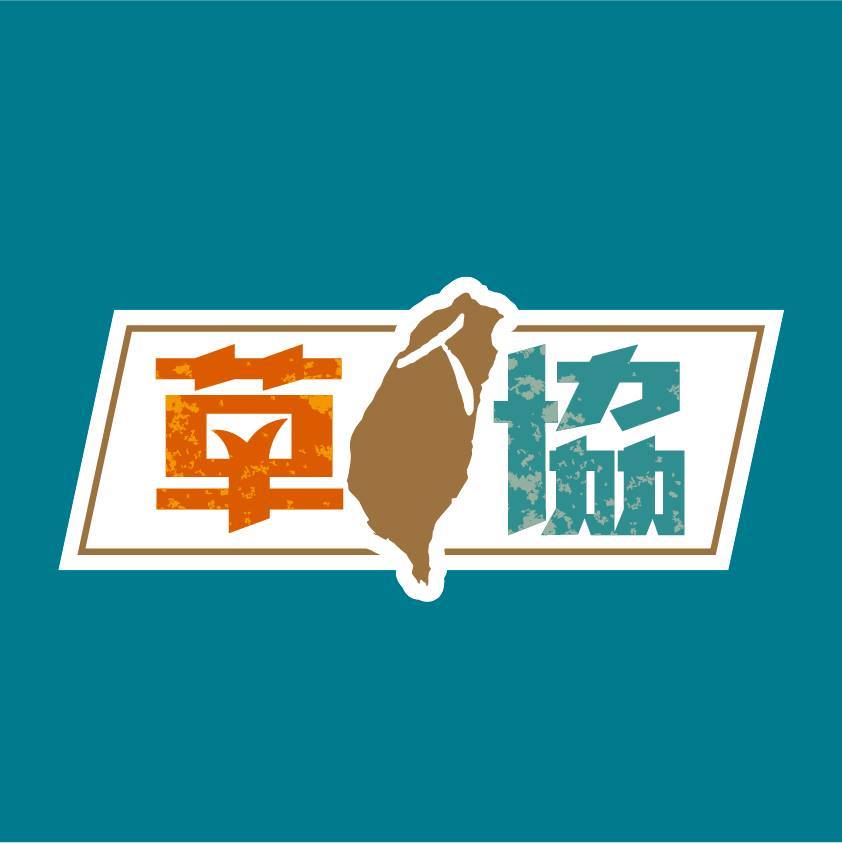 Grassroots Alliance logo. Photo credit: Grassroots Alliance
Grassroots Alliance logo. Photo credit: Grassroots Alliance
Namely, the increasingly geriatric KMT leadership is presently too terrified of losing its party identity through any form of compromises, including localization or reform. But in response to crisis, the party decided to try and return to hardline traditional values, rather than reform. The KMT will never be able to appeal to a broad audience of young people in Taiwan on the basis of its self-inflicted inability to modernize, marking it for extinction rather than the reform that Cole seems to think is inevitable.
By No Means A Monolithic Entity, But Sometimes Not Necessarily So Attached to Taiwan Either
IT IS AN OBVIOUS truth that the KMT is not a monolithic entity (though neither are pro-Beijing forces in Hong Kong, the Chinese Communist Party itself, or, for that matter, any political force whatsoever). The KMT does not consist uniformly of pro-unification diehards. However, Cole would seem to be in somewhat of a rush to defend the KMT against the charge of being pro-unification, in order to claim the KMT as being pro-Taiwan in their own way.
if Cole claims that given that the KMT has “shelved the silly idea of ‘retaking the Mainland’” and “dropp[ed] the strident anti-communism doesn’t mean that the party has embraced the People’s Republic of China or the repressive political system that prevails there”. This is not universally true of the KMT at all. Having realized that they will not retake China means in many cases, that does in fact means that unification with China under CCP auspices is preferable to no unification for some, with a rosiness about China’s lack of democracy.
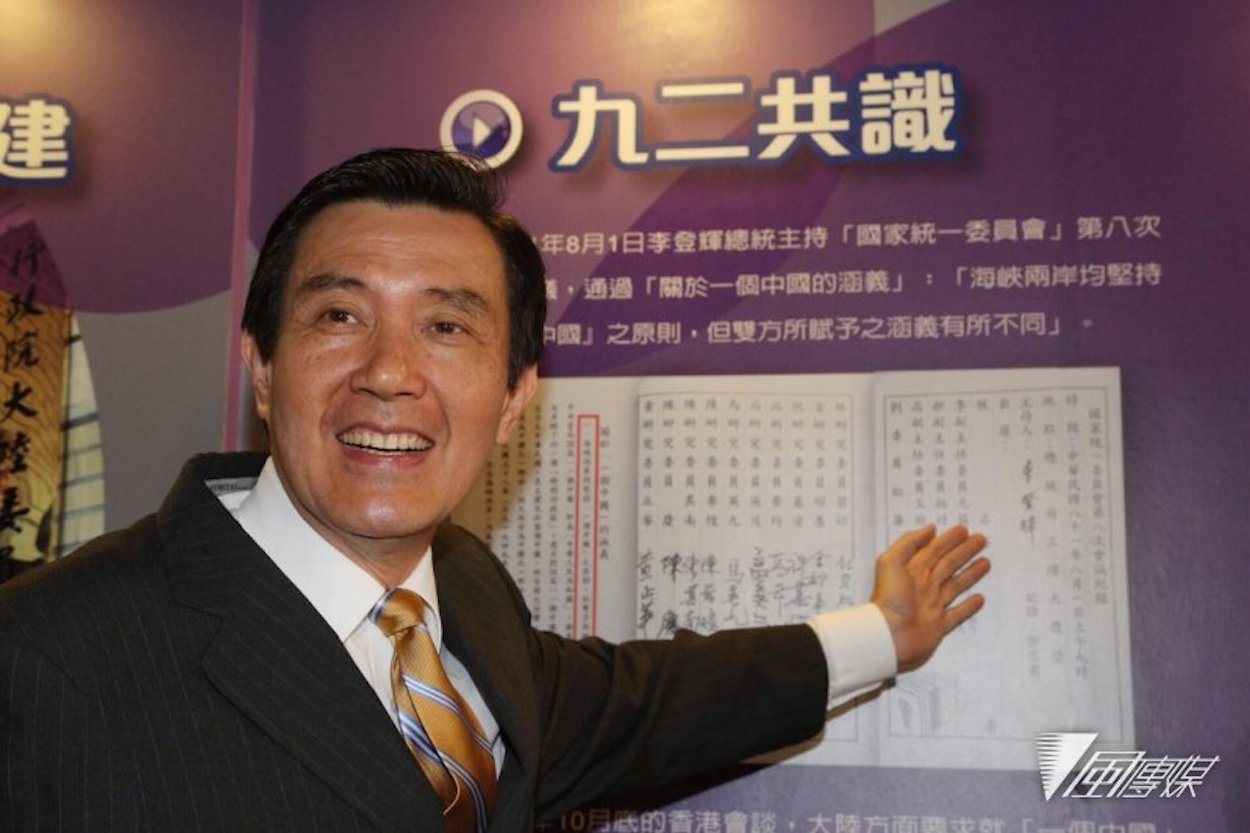 Ma Ying-Jeou. Photo credit: Storm Media
Ma Ying-Jeou. Photo credit: Storm Media
Indeed, for some, with the passage of time, the historical antagonism between the PRC and ROC has been forgotten by large elements of the KMT—“China” taking precedent above the historical antagonisms between the CCP and KMT. Actually, one finds that KMT members committed to projects of unification often do not actually realize the full extent of China’s lack of freedoms, seeing China as more or less having opened up, economically developed, and becoming more or less a free country in the present—though with still some room for minor improvement in some respects.
On the other hand, Cole also seeks to defend Ma Ying-Jeou from the charge that he is a stooge of Beijing. It obviously is true that Ma is not a direct subordinate of Beijing as, for example, the Hong Kong government is. But not being a direct subordinate of Beijing does not mean that Ma would not serve as an agent of Beijing’s interests of his own free will either, if it is to his personal interest, by acting as an independent power broker between Taiwan and China.
Along similar lines, Cole seeks to defend Taishang who often vote KMT from the stereotyped charge that they traitors are willing to sell Taiwan out to China. It is true that ordinary Taishang businessmen are oftentimes just individuals simply trying to make a living for themselves and in this sense, yes, Cole is right about the KMT not being monolithic. There is a KMT rank-and-file which should not be perceived as uniformly in favor of unification, or slandered as political traitors. Indeed, such individuals are not motivated by pro-unification sentiment or political identification with China, and sometimes vote KMT because the KMT seems to offer what is perceived as more solid economic and political security for Taiwan vis-a-vis the elephant in the room for Taiwan economically and politically, China.
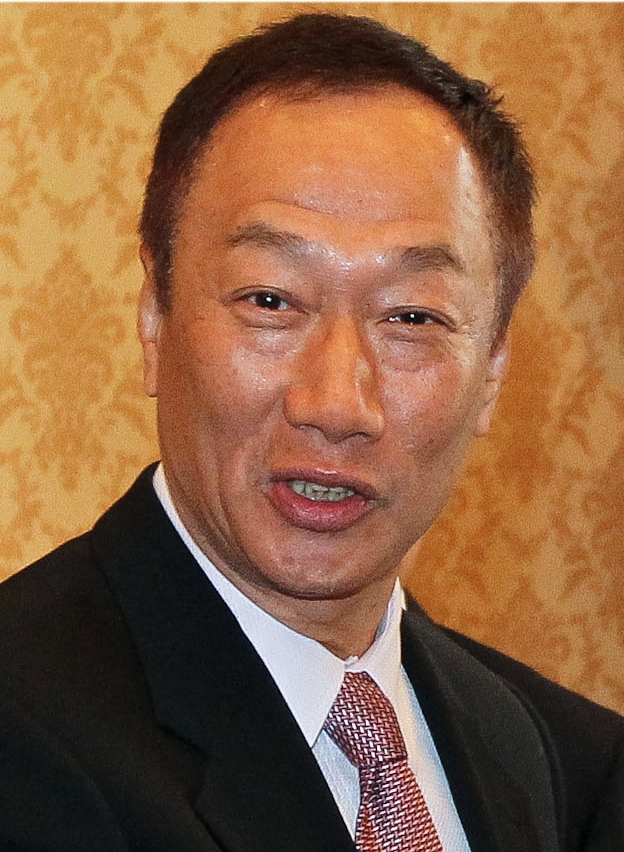 Terry Guo, owner of FoxConn and outspoken KMT supporter. Photo credit: WikiCommons
Terry Guo, owner of FoxConn and outspoken KMT supporter. Photo credit: WikiCommons
But for the extremely wealthy or politically powerful, their political and economic interest rises above either Taiwan and China entirely. This is where Cole himself does not make sufficient distinctions among the KMT as part of his call to not treat the KMT as monolithic in nature. It honestly does not matter for a powerful political figure Ma Ying-Jeou or a tycoon as Terry Guo what the fate of Taiwan is, for example; they have the financial and political means to survive regardless of what happens to Taiwan. In such cases, it is very possible economic self-interest trumps national identification, and so such individuals may in fact have no scruples about selling out Taiwan to China. They will survive and prosper, regardless.
Why Defend the KMT As A Partner in Taiwanese Democracy?
IN THIS SENSE, though not actually the first time he has made the attempt to bizarrely claim the KMT as somehow being pro-Taiwan in its own way, including claiming that even Hung Hsiu-Chu is somehow pro-independence, Cole’s intervention would seem to actually be vaguely in defense of the KMT. However, it does well to point out this is founded on a rather rosy view of the KMT than the actual reality of the party. At heart, Cole’s anxiety probably stems from the possibility that pending the possible collapse of the KMT, Taiwan would not have two sustainable electoral parties. Yet it does well to remember that the KMT, the former authoritarian party, is not a normal political party and that Taiwan’s full transition to democracy will not be possible until it is removed. The KMT, as the former authoritarian party, has undue influence over government institutions through the lingering traces of the former party-state and through personalist networks of influence which remain from the authoritarian period.
We do well also to return to the KMT’s its own disrespect for Taiwanese democracy within Taiwan, as we saw in 2014 with the attempt to force the CSSTA trade bill with China through legislature using undemocratic means—thus, the KMT may not be so committed to democracy, wherever, period. The KMT also illustrates its willingness to go beyond Taiwanese democracy through holding direct meetings with the CCP on a intraparty basis, above the government relationship of the PRC and ROC, as occurred in May 2015 and as the KMT has suggested is not off the table in the future. To forget about the undemocratic nature of the KMT is to forget the lessons of the 2014 Sunflower Movement.
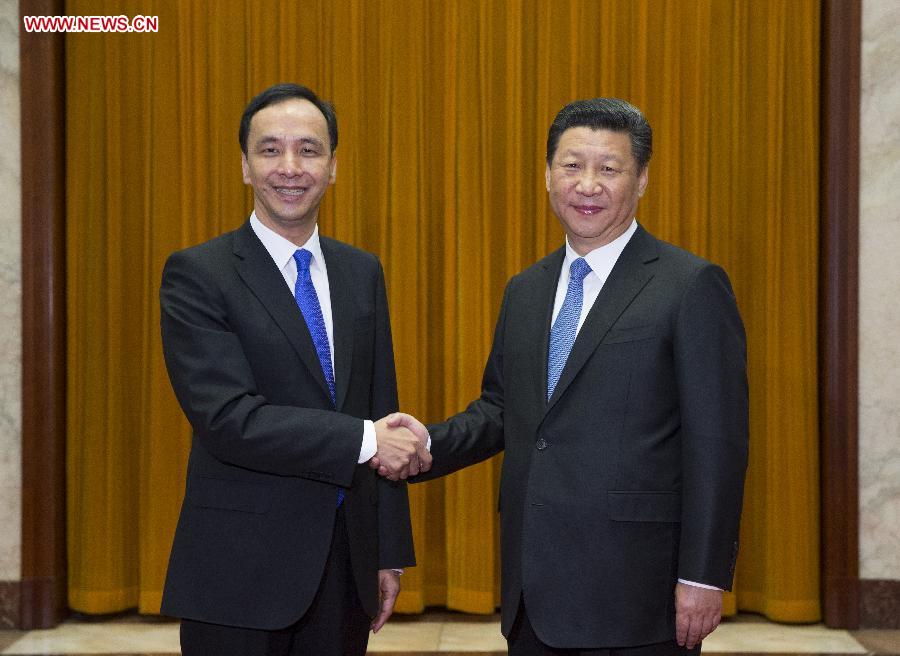 Meeting between Eric Chu and Xi Jinping in their capacities as chairmen of the KMT and CCP in May 2015. Photo credit: Xinhua
Meeting between Eric Chu and Xi Jinping in their capacities as chairmen of the KMT and CCP in May 2015. Photo credit: Xinhua
As with many western commentators on Taiwanese politics, we sometimes find a strange temptation to paint the KMT in rosy terms—as a partner in Taiwanese democracy rather than a continual antagonist to it—as well as being a political party which is still viable, rather than one not only unable to modernize, but also currently in the throes of tearing itself apart internally. The overriding fear is probably that without the KMT, the Taiwanese political system would become unstable, with the view that two-party governmental systems are the most stable forms of governance.
But honestly, there is probably no need for such fear. If the KMT collapses, very probably a new party would come to fill its vacuum. After all, like it or not, neither the KMT rank-and-file nor the KMT political elite would disappear and taken up by the rapture in a post-KMT paradigm, but continue to exist as political actors and probably organize under new auspices. This may mean forming a new political party, joining one of the existing split-offs from the KMT—or even joining the DPP.
Yet so long as the KMT continues to exist, the KMT will have a negative effect on Taiwanese democracy, as a force which acquiesced to the demand for democracy only unwillingly and even now resists democracy. The KMT is now presently in a process of decline and ultimately, the collapse of the KMT will be beneficial for Taiwanese democracy. As the slogan which arose after the Sunflower Movement goes: “As long as the KMT doesn’t fall, Taiwan cannot prosper!” (國民黨不倒,台灣不會好!).

